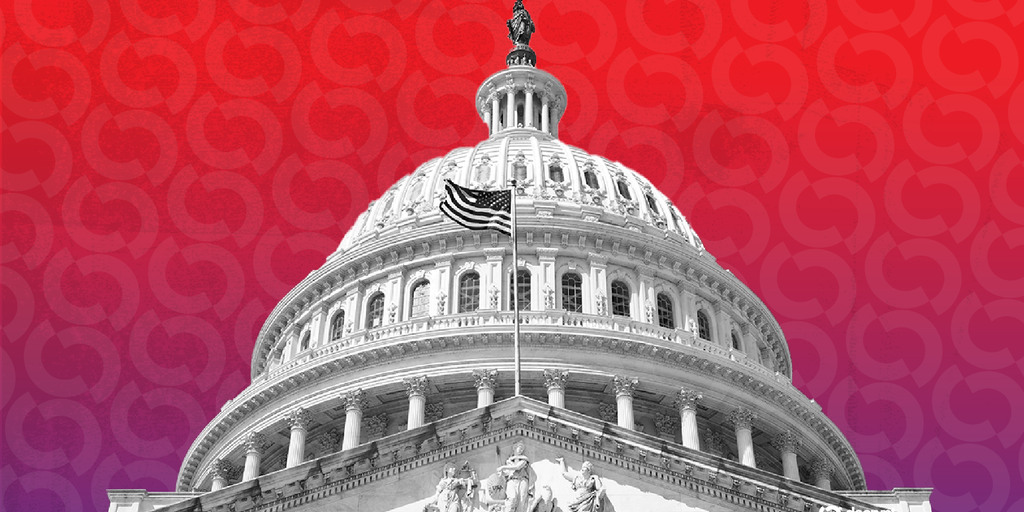
The cryptocurrency industry is intensifying its efforts to influence tax policy in the United States. With ongoing debates around crypto’s market structure in Congress, industry leaders are shifting their focus to simplifying tax regulations on cryptocurrency transactions and staking rewards. This initiative includes strategic dinners with lawmakers and direct appeals to the highest levels of government.
Private Dinner with Lawmakers: Securing Congressional Support
On Monday, the American Innovation Project (AIP), a powerful nonprofit backed by major crypto stakeholders, hosted an exclusive dinner with members of the U.S. House of Representatives. The event aimed to educate lawmakers on the complexities of crypto tax policies and the lack of regulatory clarity in the space. Attending the dinner were prominent members of the House Ways and Means Committee, including Adrian Smith (R-NE) and Brendan Boyle (D-PA), alongside Representatives from both parties.
The discussions centered around two primary issues: a potential de minimis tax exemption for small crypto transactions and favorable tax treatment for staking rewards. These priorities highlight the growing demand for a streamlined approach to regulating cryptocurrency in everyday commerce.
Nonprofit Advocacy with a Strategic Edge
AIP, funded by major institutions like Coinbase, Paradigm, and Andreessen Horowitz, is at the center of this growing movement. By law, nonprofit organizations like AIP cannot directly lobby for legislation, but they are leveraging education-focused events to engage lawmakers and Capitol Hill staffers. Recent dinners hosted by AIP were designed to inform policymakers about crypto-related challenges, emphasizing the wider economic benefits of clarity in tax regulation.
In parallel, the Solana Policy Institute, alongside over 60 crypto organizations, recently sent a letter to the Trump administration urging immediate action on “quick wins” in the crypto tax realm. These proposed measures could be implemented without Congressional approval, relying instead on executive orders.
Key Tax Priorities: De Minimis Exemption and Staking Rewards
The de minimis exemption is at the forefront of the industry’s agenda—a change that would eliminate taxes on small cryptocurrency transactions, facilitating crypto adoption in everyday purchases. Similarly, there is an ongoing debate over the taxation of staking rewards: whether they should be taxed when earned or when sold. Resolving these issues is expected to provide clarity for both individual investors and businesses.
Staking rewards, in particular, allow users to earn yields by pledging cryptocurrency to secure a blockchain network. With clear and favorable tax policies, staking has the potential to attract more participants, further strengthening the crypto ecosystem.
What This Means for Crypto Investors
For crypto enthusiasts and investors, these discussions could pave the way for simplified tax reporting and reduced barriers to using cryptocurrency in daily transactions. Advocates hope to drive legislation by working with pro-crypto lawmakers such as Senator Cynthia Lummis (R-WY), who has voiced strong support for reforms.
Want to start staking safely while keeping track of your taxes? Check out Coinbase Staking, a beginner-friendly platform for earning staking rewards. It’s a great way to participate in the crypto ecosystem while staying compliant with evolving tax guidelines.
The Road Ahead for Crypto Legislation
As crypto leaders continue their advocacy through education and collaboration, the industry’s push for favorable tax policies is gaining traction. While challenges remain, ongoing dialogue with lawmakers signifies a step toward making cryptocurrency more accessible and integrated into everyday financial systems. Stay tuned for updates as these efforts unfold.






